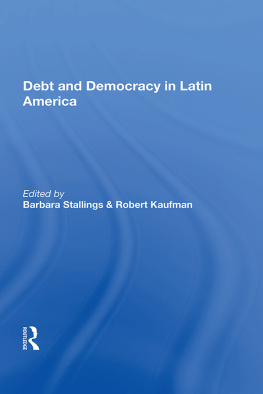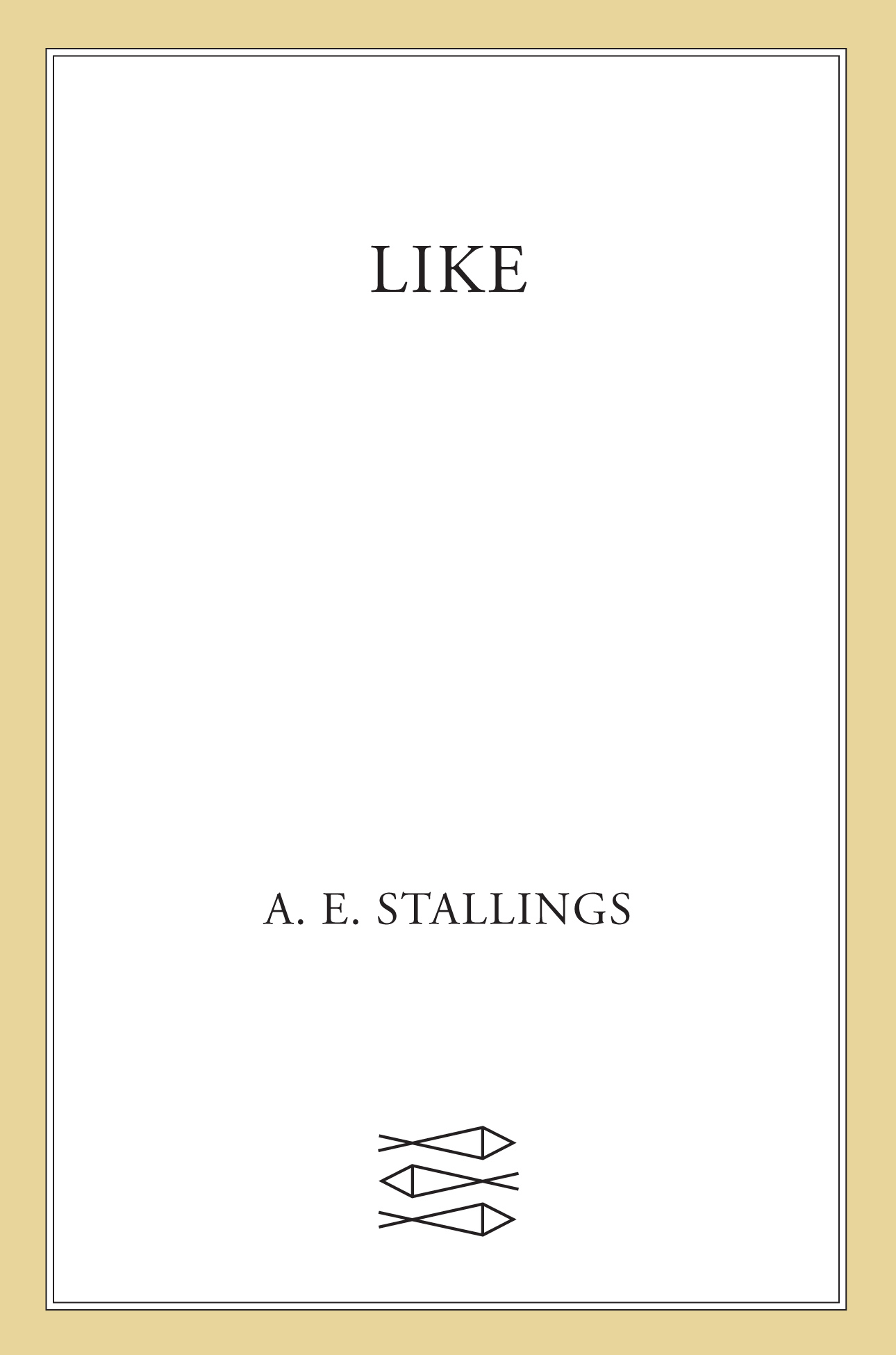Contents
Guide
Pagebreaks of the print version

The author and publisher have provided this e-book to you for your personal use only. You may not make this e-book publicly available in any way. Copyright infringement is against the law. If you believe the copy of this e-book you are reading infringes on the authors copyright, please notify the publisher at: us.macmillanusa.com/piracy. For Jason and Atalanta Were here for the time being, I answer to the query Just for a couple of years, we said, a dozen years back. Nothing is more permanent than the temporary.
We dine sitting on folding chairsthey were cheap but cheery. Weve taped the broken windowpane. TVs still out of whack. Were here for the time being, I answer to the query. When we crossed the water, we only brought what we could carry, But there are always boxes that you never do unpack. Nothing is more permanent than the temporary.
Sometimes when Im feeling weepy, you propose a theory: Nostalgia and tear gas have the same acrid smack. Were here for the time being, I answer to the query We stash bones in the closet when we dont have time to bury, Stuff receipts in envelopes, file papers in a stack. Nothing is more permanent than the temporary. Twelve years now and were still eating off the ordinary: We left our wedding china behind, afraid that it might crack. Were here for the time being, we answer to the query, But nothing is more permanent than the temporary. The washing-machine door broke.
We hand-washed for a week. Left in the tub to soak, the angers began to reek, And sometimes when we spoke, you said we shouldnt speak. Pandora was a bride the gods gave her a jar But said dont look inside. You know how stories are The can of worms denied? Its never been so far. Whatever the gods forbid, its sure someone will do, And so Pandora did, and made the worst come true, She peeked under the lid, and out all trouble flew: Sickness, war, and pain, nerves frayed like fretted rope, Every mortal bane with which Mankind must cope The only thing to remain, lodged in the mouth, was Hope. Or so the tale asserts and who am I to deny it? Yes, out like black-winged birds, the woes flew and ran riot, But I say that the woes were words, and the only thing left was quiet.
Deep in the wood where things escape their names, Her childish arm draped round the fawns soft neck (Her diffidence, its skittishness in check, Merged in the anonymity that tames), She knits her brow, but nothing now reclaims The syllables that meant herself. Ah well, She need not answer to the grown-up beck And call, the rote-learned lessons, scolds and blames Of girlhood, sentences to parse and gloss; Shes un-twinned from the likeness in the glass. Yet in the dark ellipsis she can tell, Shes certain, that her name begins with L Liza, Lacie? Alias, alas, A lass alike alone and at a loss. My mother fell for beauty, Although it was another species, Ox-eyed, dew-lapped, groomed for sacrifice. She had to devise another self To put her self insomething inhuman Or beauty could not possess her (O daedal mechanics!) She grew huge with hybridity, Rumor-ripened. I was born To be amazed.
She fascinated me with cats cradles, Spun threads out of my hirsute Hair shirt. I was fed On raw youths and maidens, When all I wanted was the cud of clover. I was named after my step Father, dispenser of judgment, No one called me my mothers son. Minotaur, they said, O Minotaur, You are unnatural, grotesque. A hero will come to slay you, a hero Who jilts princesses on desert islands. It is heroic to slay, to break a heart, To solve the archaic puzzle in the basement, De-monster the darkness.
I await this patiently, as I bow to the yoke Of making, scratching this earliest of inscriptions On a potsherd, down here in the midden, Writing left to right, then right To left, as a broken beast furrows a field. FOR EVELYN ET SPATIO BREVI SPEM LONGAM RESECES Youre doing them no favors Letting them get too tall Too fast for their own good; Curtail the sprawl. Theyll only get leggy and weak And die faster If you dont take things in hand And show them whos master. Pretend you are that leveller, The wind, unsheathe Your bladesbe the gnawing Grazers teeth. Fall back, cluck the clocks: The hour youre dreading Comes with time on its hands For the deadheading. You water them and feed them And call yourself a gardener.
You coddle and you pardon: Be harder and hardener. Out of Book Nine of the Histories of Herodotus THE SPARTAN GENERALS After the blood-brimmed field, we were amazed to stride into those empty silken tentsbright tapestries, wrought silver ornaments, the furnishings of solid gold. Eyes glazed at all the untold booty: gods be praised! Our king bid foreign cooks spare no expense to make the meal our foes would eat, prepare their pastries, spices, wine. Such slowly braised flesh melting off the bone! Such colors, scents! Our king laughed as he laid out on the cloth, beside the feast, our ration of black broth: Behold! They came to rob us of our fare! We also laughed, though fed up with that food, the soldiers mess, the black broth of blood. THE CONCUBINES We heard the Greeks had won. At once I went and decked myself with every bracelet, ring, gold necklace that I owned, and rouged my cheeks, and hastily had my maids arrange my hair.
The other concubines slumped in despair; but Id been snatched from Kos; my people, Greeks! Dressed in white robes of silk, we fled the tent, and drove through corpses, far as the eye could see, until I saw Pausanias, the king. I stepped with golden sandals through the gore, the lady that I was, and not the whore, and knelt, a supplicant, Please set me free. The roar of blood like silence in my ear, until: Lady, arise, be of good cheer. LAMPON THE AEGEINITE Your glory after this victory is sealed, I told Pausanias, to please him. Now crown it with revenge for Leonidas beheaded at Thermopylae. Remember the restitution that Xerxes denied us, and how he said Mardonius would pay it? Well, here is the cadaveryou just say itand well impale Mardoniuss head.
He stood in silence as his face went somber. Stranger, he addressed me, on this field the crime was well avenged. As for that corpse, who knows what happened to it? There are versionsthe truth is not so straight it never warps. Someone interred itso Ive heard it saidand reaped a handsome bounty from the Persians. THE IMMORTALS He called us the Immortalsthe select companions who would battle at his side, Mardonius on his white charger. Pride, we felt, of course; maybe we half believed we were that day, not helmeted or greaved, no golden scales under the robes we wore.
We wielded wicker shields for catching arrows. We were surrounded, as on mountain hunts a pack of Spartan hounds surrounds the boar. In that tight space, we knew our hopes were wrecked, like ships, frail bridges over Hellesponts, the horsewhipped waters bridling at the narrows. We were caught up in doom, as fish or sparrows, grateful like other men to die but once. ARISTODEMUS THE COWARD I lie here without honor, as I willed. Alone among those at Thermopylae I livedif it is life to loathe each breath.
They say I was the bravest Spartan here, but that I broke formation, and I fought not only as one not afraid of death, but one who seeks it, battle-mad, distraught. A Spartan soldier never leaves the line. It took so many Persians to get killed, I slogged on, drunk with slaughter as with wine. And when at last I met the foemans spear, I laid my body down like shame, now free to fall amidst the dust, having fulfilled the ranks of the two hundred and ninety-nine. Maybe its best to burn the whole thing down, The framework with its secret joineries. Every morning, check the sheets for blood As though for tiny lost virginities, Or murder itself distilled into a drop.








 The author and publisher have provided this e-book to you for your personal use only. You may not make this e-book publicly available in any way. Copyright infringement is against the law. If you believe the copy of this e-book you are reading infringes on the authors copyright, please notify the publisher at: us.macmillanusa.com/piracy. For Jason and Atalanta Were here for the time being, I answer to the query Just for a couple of years, we said, a dozen years back. Nothing is more permanent than the temporary.
The author and publisher have provided this e-book to you for your personal use only. You may not make this e-book publicly available in any way. Copyright infringement is against the law. If you believe the copy of this e-book you are reading infringes on the authors copyright, please notify the publisher at: us.macmillanusa.com/piracy. For Jason and Atalanta Were here for the time being, I answer to the query Just for a couple of years, we said, a dozen years back. Nothing is more permanent than the temporary.